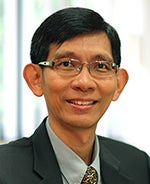Contemporary Life Sciences Camp: Epidemiology
CONTEMPORARY LIFE SCIENCES CAMP: EPIDEMIOLOGY
(In partnership with APCME and organised by NUS)
In light of the COVID-19 pandemic, the Contemporary Life Sciences Camp is designed to enhance students’ understanding about the current phase of the pandemic through informative lectures by university faculty and interactive workshops.
LECTURES
Are vaccines hard to produce? Why does it take so long before vaccines can be used on humans? What is process of animal testing like and is it morally right to do such experiments on animals?
Associate Professor Seow Teck Keong will bring you on a journey on the ethical issues during vaccine and drug development and discover about the rules and guidelines when conducting experiments involving live subjects like humans and animals.
Also, A/P Seow will give a seminar covering topics for establishment of foundation knowledge of cell and molecular biology that is relevant to the rest of the camp. (e.g virus entry into host and interaction with host cells)
About Associate Professor Seow Teck Keong
 |
Prof Seow is an Associate Professor at the Department of Biological Sciences and the College of Alice and Peter Tan. He has been coordinating and teaching large classes with enrolments of 350 to 800 students per semester since 2003. The challenge of effectively managing the teaching and learning of not only a large number but also a large diversity of students every semester had motivated Prof Seow to explore the use of technology in education and investigate the impact of the utilisation of technology on learning. He seeks to interact with as many of his students as possible and get them enthused about the scientific study of life. This desire of his to leave a lasting and positive impact on the lives of his students is also seen in the many long-lasting friendships forged with the residents of King Edward VII Hall during his many years of service as a Resident Fellow there.Since his joint-appointment at the College of Alice and Peter Tan from August 2014, he has been thinking about the value of residential living on learning. |
WORKSHOPS
Modelling of an epidemic
Winning a fight against an epidemic requires a good grasp of what might happen as the disease progresses in the community. How many more infections do we expect after “circuit breakers” and “lockdowns” are imposed? When would it be safe again to go about our normal routine? How can Mathematics help us make reasonable decisions about the situation?
Using some concepts and ideas from just high school Mathematics, workshop participants can learn how to simulate the different scenarios and gain insights into epidemic spread and control. They would also learn how to interpret and process available health data in light of the skills and knowledge they have gained during this workshop.
Bioinformatics
How do scientists trace an organism back to its ancestors? How sure are scientists when they discover a new species? How was the first COVID-19 genome determined? With modernization and more advanced machinery available for Biology research, what are the tools that we can use to help us answer the questions we have about our world, and deal with the huge chunks of data coming in everyday from labs and experiments?
Bioinformatics has become an integral part of modern life sciences, and it has become more relevant now than ever in the research and analysis process. Basing off concepts learnt in secondary school and high school, workshop participants will learn how to navigate and search for information on web-based databases, access and interpret the data on their own to learn more about DNA, RNA and proteins. They will also learn how to create a phylogeny tree to establish the evolutionary relationships between different organisms, as well as explore the role that bioinformatics plays in the society today, with COVID-19 as the subject of follow-up activities.
Detection Methods and Masks
This workshops aims to explore some of the laboratory methods (RT-PCR and Serology) used to detect the presence of the virus in suspected cases. Participants will also find out about the different types of masks (and respirators) and their effectiveness against COVID-19. Discover the functionality of different layers in the mask and find common household materials to build your own DIY mask!
MODE OF DELIVERY
Lessons will be conducted online. Relevant science experimental kits will also be delivered to participants.
Discussions with other international participants are expected.
More details will be given upon successful registration.
CAMP REGISTRATION
For registration process and camp related queries, please email us at nussciencecamp@apcme.com.sg.
*The camp will be conducted over the stated dates.
**Payment details will be sent to you via email.


